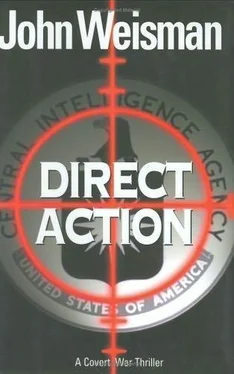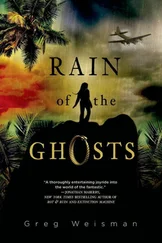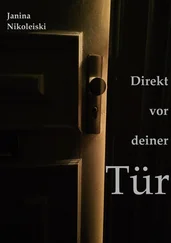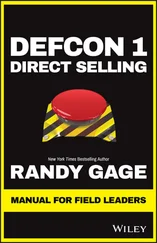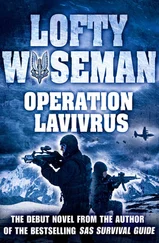PARDIGGLE’s reaction had been…sanguine. “Next time, I suggest you interview dangles during business hours,” was how he responded to OFUTT’s furious cable.
Tom reached inside his jacket, unplugged the microphone concealed behind his lapel, and switched off the digital recorder he’d been running for the past two and a half hours. He drained the last of his wine and stared at the crowded bar, his fingers tapping on the marble tabletop. Something about the meeting with Margolis was gnawing at him, but he couldn’t put his finger on it. He called for the check and laid a stack of euros on the saucer.
The bulb went off just as the waiter cleared the plates and glasses. The recruitment had been too easy. How had Sam Waterman put it? Sam had defined these sorts of situations as examples of Waterman’s First Law of Espionage, which went: “When Something Is Too Good to Be True, It Is in Fact Too Good to Be True.”
Langley was setting a trap for him. Why, he had no idea-except for Tony Wyman’s cryptic remark earlier in the week that CIA headquarters had refused to fund 4627’s Ben Said operations. But reasons didn’t matter-not now. Oh, he’d find a way to foil the ambush. But now there was no time to think about devising countermeasures. He had to get home, change clothes, and meet Reuven. They were scheduled to put the bug in Ben Said’s safe house tonight.
6 NOVEMBER 2003
7:22 P . M .
TOM FROZE,the key to his apartment six inches from the dead bolt. The intrusion device he’d carefully placed before leaving in the morning had been disturbed. That meant someone had tried to gain entry-or was waiting for him inside.
His heart started to thump. Slowly, he backed away from the door so he could gather his thoughts.
He’d been careful-or so he thought. Given the level of static surveillance around the embassy, he’d performed a cleaning route, taking an indirect course from Le Griffonnier to the Miromesnil metro stop. There, instead of heading southwest toward Passy, he went the opposite way, to Gare St. Lazare. He’d left the metro and used the station’s multiple exits and entryways to confuse any pursuers, crossed the square against the light, and then walked against the traffic flow up the rue de la Pépinière, turned the corner at Place St. Augustin, and dropped into the metro, switched lines twice, rode to Villiers, then on to Étoile. There, he changed lines again, took the metro two stops to Franklin D. Roosevelt, meandered for six minutes, letting two trains come and go, then caught the third one to Trocadéro. He raced through the passageway, changed lines once more, and rode one stop to the Passy stop-a three-minute walk from his apartment. At no time had he sensed he was being pinged.
And yet the signs were clear. Someone had made surreptitious entry into his apartment. The minuterie light went out. Tom reacted. Quickly, he brought himself under control. He slid along the wall to the light button and pressed it. Then he carefully made his way back to his doorway, stopped, and waited until the light went out again.
He dropped to hands and knees, pressed his eye to the threshold, peered through the crack. There were lights on.
Behind him, he heard mechanical grinding. He jumped to his feet. The elevator stopped. He heard the inside being pulled open. The minuterie went on, the elevator door was pushed outward, and Tom’s neighbor Madame Grenier stepped into the corridor.
She acknowledged his presence with a regal nod. “Good evening, Monsieur Stafford.”
“Good evening, Madame Grenier.” He waited until she found her own keys, unlocked the door across the corridor from his, and went inside.
He slid the key into the bolt. Turned it. Put pressure on the handle. Pushed downward. Eased the door open slowly.
No reaction. The foyer light was on but the rest of the apartment was dark. Stealthily, Tom made his way into the small kitchen on his left. Pulled the biggest chef’s knife he had from the butcher-block holder on the counter, held the weapon point up behind his back, and headed for the living room. That’s where the concealed safe was.
But the living room was empty. He stood there for a moment, straining to hear any anomalous sounds. There were none. The pipes gurgled. He could hear the muffled traffic noise from the street. He gnawed on his lower lip for a few seconds, steeled himself, then started for the bedroom.
Halfway across the big Sarouk, he stepped on a loose floorboard that sounded-at least to Tom-as loud as an air horn. He cursed his clumsiness and gripped the knife tighter.
And then, from the bedroom, came MJ’s voice. “Tom? Tom, is that you?”
“MJ?” He exhaled a huge, noisy sigh of relief. “My God, what a wonderful surprise,” he called out, quickly looking for some place to put the knife down. He set it on the coffee table then went to the bedroom. “What on earth are you doing here?”
She sat up in the bed. She was wearing one of his shirts. Her long hair was all askew. She’d taken off her makeup. She looked absolutely, sleepily, sexily magnificent. “I guess I conked out. Didn’t you get my message?”
He took her into his arms. “No-I mean, what are you doing here?”
“They suspended me. So I decided-”
“They? Who? What?”
She smiled at him indulgently. “Don’t worry. It’s the best thing that ever happened.” She caressed his cheek. “Mrs. ST. JOHN went ballistic when I told her I’d been in Israel. She thought it had something to do with the photographs. She threatened to revoke my clearance, Tom.”
“Can she do that?”
“Who cares.”
“I do.”
MJ looked at him. “Why?”
“Because you’ll need your clearance to work for 4627.” He embraced her. “Suspended, huh? Good. You’re right. Best thing that ever happened.” He stroked her hair. “We’ll celebrate.” He kissed her gently on the lips. “But we’ll celebrate tomorrow.”
“Tomorrow?” She pulled him closer. “What about tonight?”
“Tonight I’ve got a date with a bald Israeli.”
7 NOVEMBER 2003
1:04 A . M .
30 BOULEVARD BARBÈS, PARIS
REUVEN HAD BEEN BUSY.He’d isolated Ben Said’s safe house through the process of deduction and through experience-field smarts. Terrorists already understood that safe houses could be identified through the utilities. If you had ten apartments in a building, all of them allegedly occupied full-time, and one had an electric bill that was only 10 percent of the others, it was logical to deduce that either the occupant spent a lot of time on the road or that you’d located a safe house. So the bad guys compensated these days by leaving their lights on.
Reuven also knew that in Paris, no terrorist worth his WMD would ever use the local phone system. Parisian phones both public and private were too damn easy to bug. DST had the capability of eavesdropping on any line in the city within minutes, and unlike the FBI, they didn’t need to beg for search warrants or have their FISA paperwork approved by some ACLU-loving judge to get the go-ahead.
So in Paris, terrorists tended to communicate either in person or by e-mail. Or, to make calls these days, the bad guys often used prepaid cell phones, which they’d change on a daily or even twice-daily basis. The phones themselves were cheap, and the prepaid SIM cards, available anywhere in Europe, made it easy to switch numbers and carriers.
Bottom line: the safe house would be the only apartment in the building that either didn’t have phone service at all or didn’t bill any outgoing calls. So Reuven had used his contacts and checked the building’s utility records. As he suspected, the electric bills were all pretty much the same. But the phone bill for the rearmost apartment on the deuxième étage was less than half of all the others. Plus, according to a gossipy neighbor, there was seldom anybody home.
Читать дальше
